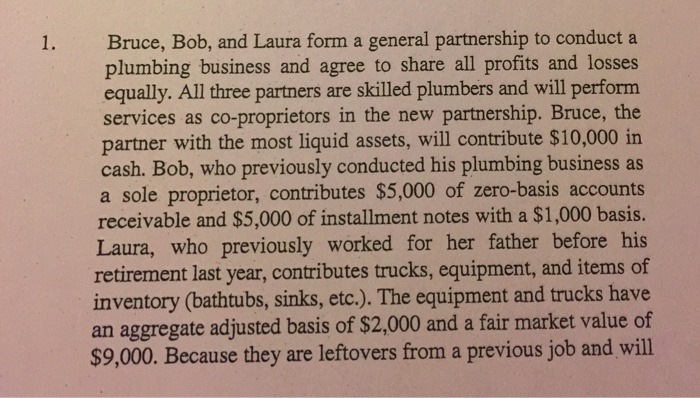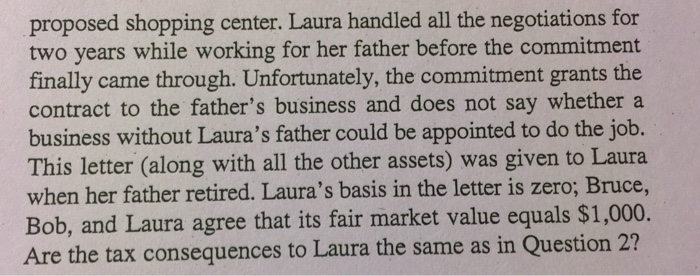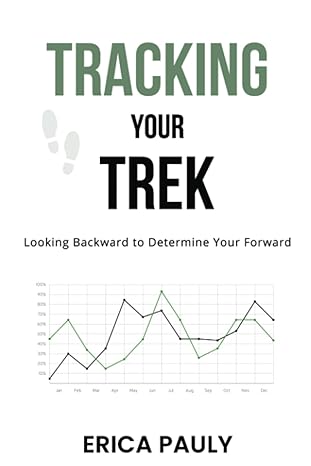



Bruce, Bob, and Laura form a general partnership to conduct a plumbing business and agree to share all profits and losses equally. All three partners are skilled plumbers and will perform services as co-proprietors in the new partnership. Bruce, the partner with the most liquid assets, will contribute $10,000 in cash. Bob, who previously conducted his plumbing business as a sole proprietor, contributes $5,000 of zero-basis accounts receivable and $5,000 of installment notes with a $1,000 basis. Laura, who previously worked for her father before his retirement last year, contributes trucks, equipment, and items of inventory (bathtubs, sinks, etc.). The equipment and trucks have an aggregate adjusted basis of $2,000 and a fair market value of $9,000. Because they are leftovers from a previous job and will 1. be difficult to sell, the inventory has a basis of $4,000 but is worth only $1,000. Assume the partnership will compute its income on the cash-method of accounting. Suppose instead of contributing inventory, Laura contributes a letter of commitment to perform all of the plumbing work in a 3. proposed shopping center. Laura handled all the negotiations for two years while working for her father before the commitment finally came through. Unfortunately, the commitment grants the contract to the father's business and does not say whether a business without Laura's father could be appointed to do the job. This letter (along with all the other assets) was given to Laura when her father retired. Laura's basis in the letter is zero; Bruce, Bob, and Laura agree that its fair market value equals $1,000. Are the tax consequences to Laura the same as in Question 2? Bruce, Bob, and Laura form a general partnership to conduct a plumbing business and agree to share all profits and losses equally. All three partners are skilled plumbers and will perform services as co-proprietors in the new partnership. Bruce, the partner with the most liquid assets, will contribute $10,000 in cash. Bob, who previously conducted his plumbing business as a sole proprietor, contributes $5,000 of zero-basis accounts receivable and $5,000 of installment notes with a $1,000 basis. Laura, who previously worked for her father before his retirement last year, contributes trucks, equipment, and items of inventory (bathtubs, sinks, etc.). The equipment and trucks have an aggregate adjusted basis of $2,000 and a fair market value of $9,000. Because they are leftovers from a previous job and will 1. be difficult to sell, the inventory has a basis of $4,000 but is worth only $1,000. Assume the partnership will compute its income on the cash-method of accounting. Suppose instead of contributing inventory, Laura contributes a letter of commitment to perform all of the plumbing work in a 3. proposed shopping center. Laura handled all the negotiations for two years while working for her father before the commitment finally came through. Unfortunately, the commitment grants the contract to the father's business and does not say whether a business without Laura's father could be appointed to do the job. This letter (along with all the other assets) was given to Laura when her father retired. Laura's basis in the letter is zero; Bruce, Bob, and Laura agree that its fair market value equals $1,000. Are the tax consequences to Laura the same as in Question 2










